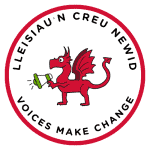In an average day, how many times do council services touch your life?
Zero? Once or twice? The chances are, it’s probably much more than that. You might be surprised…
Local councils provide a huge range of services that touch people’s lives in many different ways.
Like most other councils, Wrexham is under huge financial pressure and it’s getting harder to make ends meet. So we’re going to have to rethink the way we do things over the next couple of years.
That’s going to involve some big conversations with local people about what we keep doing (and how we do it), and what we stop doing.
So we want to try and explain more about the range of the services we provide, and the challenges we’re going to face.
To help us, we’ve decided to follow Wrexham resident Jo on a typical day.
Jo isn’t a real person (as you’ve probably sussed), but we can use her to help illustrate the many touchpoints in our daily lives when we come into contact with Wrexham Council services.
Jo’s day
Jo is 37 years old and lives in cul-de-sac in a Wrexham suburb with her husband Alex, two children Ted and Evie, and their spaniel Bob!
6.30am (bins and recycling)
It’s bin day. Jo checks her weekly email from the council reminding her which bin to put out. It’s a ‘normal’ week, so she puts out the black bin and recycling.
Wrexham Council collects waste and recycling from roughly 63,400 properties from across the county borough.
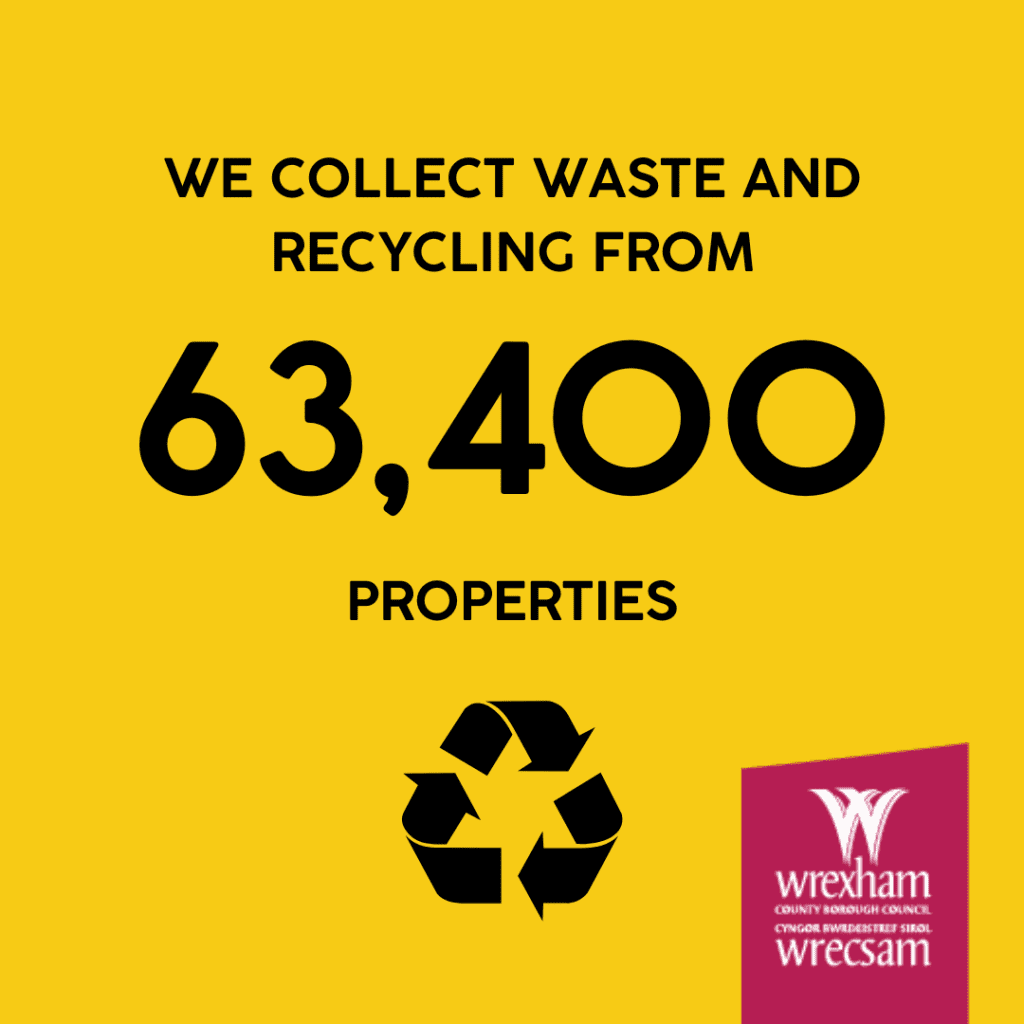
7am (grass-cutting)
Bob needs a walk, so it’s down to the local park with a tennis ball. The grass has been freshly cut, but with some areas of wild grass and flowers left for the insects.
We routinely cut and mow the grass on public open spaces, and we manage this by splitting the county borough into distinct areas and cutting in cycles. We cut more than 4 million square metres (4,030,443m2) of land in each cycle.
8.15am (school meals)
Time to walk to school. Both Ted and Evie want school dinners, which saves time and money on making sandwiches.
All primary school meals in Wales are free and provided by the local council. Our school meals catering service works to provide a good range of meal choices, with nutritional food to help children grow and develop.
8.40am (education)
The children line up on the schoolyard. Evie gives Jo a quick wave, but Ted’s too busy talking to his mates. Jo gives them a quick wave and heads off to work.
Wrexham Council supports 71 schools across the county borough, providing education to more than 18,500 children.
9am (looked after children)
Jo works for social services at a residential home for looked after child (children who can’t live at home or don’t have family they can live with). It’s a rewarding job, and today she’s helping a young man called Jaiden settle in.
Jaiden is 10 years old and has only recently had to stop living with his family due to concerns about his parents’ alcoholism and drugs misuse. It’s a huge change for Jaiden, but Jo and her team do a fantastic job supporting him..
Wrexham Council cares for more than 300 looked-after children, at a cost of more than £22 million a year.
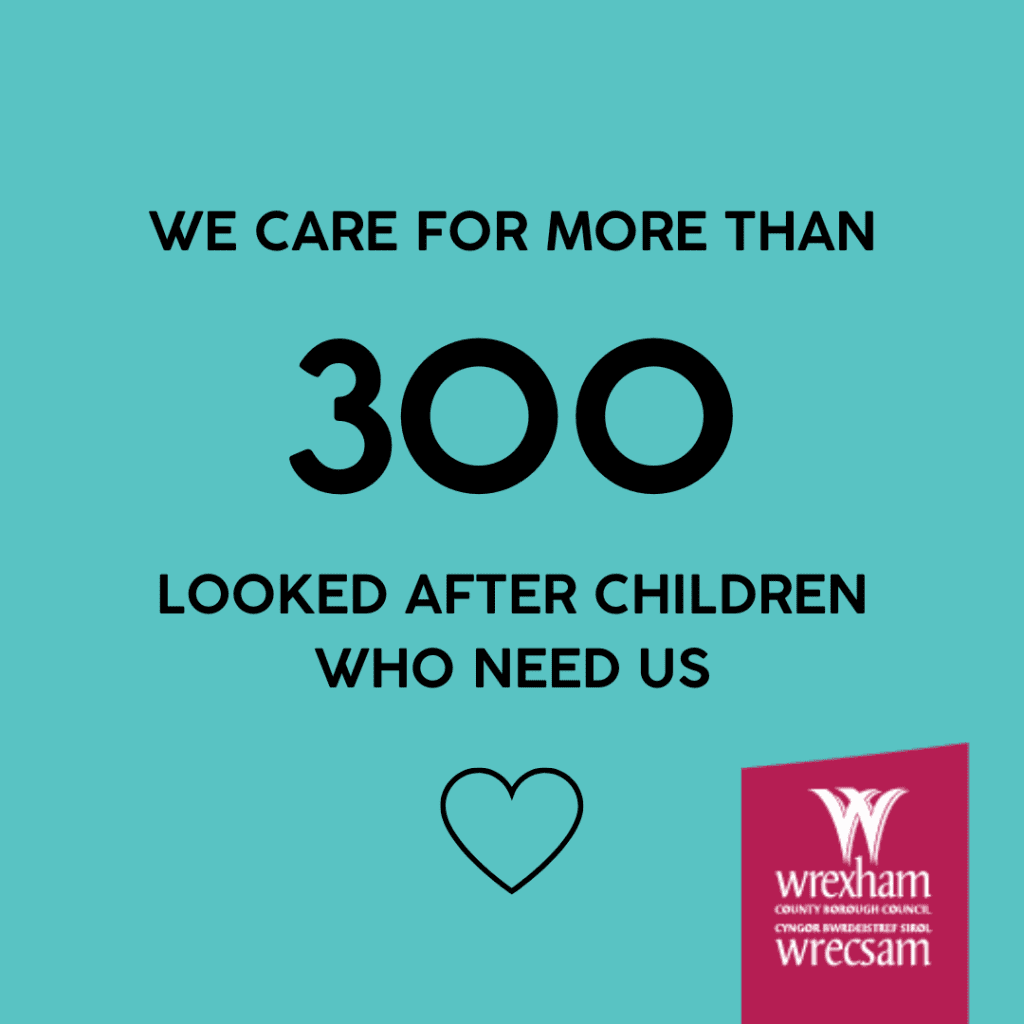
10.30am (road maintenance)
Jo uses her morning break in work to report a pothole at the end of her street. She reports it online.
We’re responsible for 1,148.5km of roads and over 428.71km of footways. We have to inspect these regularly, as well as responding to reports of any defects.
So far this year (as of November 2024) we’ve received 865 pothole reports, and we’ve inspected all of these within five working days. We then repair them in line with our highways inspection policy.
By the way, reporting potholes online is quick and easy, and helps us save money.
12noon (home care)
Jo’s mum and dad only live 10 minutes away from work, so she pops out to see them at lunchtime.
Her mum is showing early signs of dementia, but her parents both enjoy being part of the community and manage most things by themselves, with a little help from family and neighbours.
Wrexham Council also provides a Telecare alarm and carers who pop in twice-a-day to support them with their morning and night-time routines.
We support nearly 600 people every week with home care, at a cost of around £13 million annually. This helps older people live in their own home and maintain their independence for as long as possible.
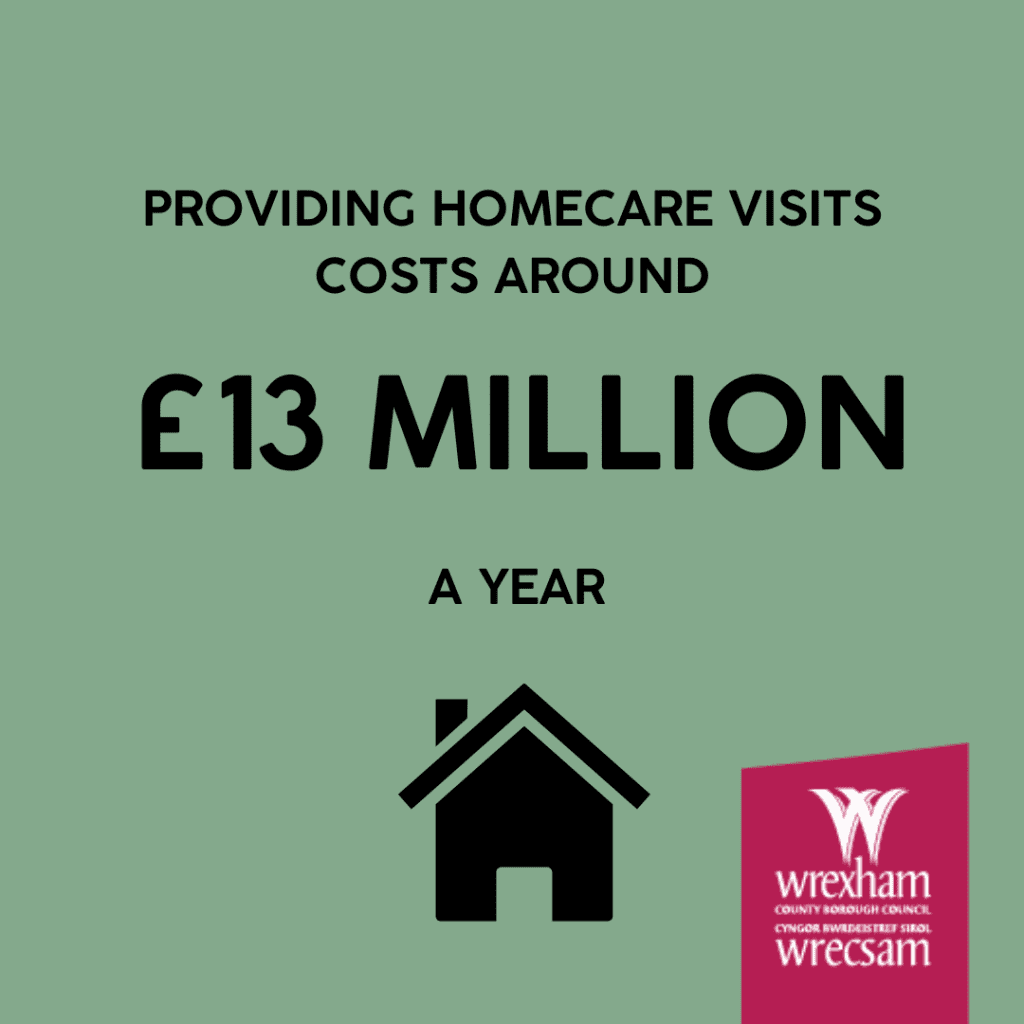
(Residential care)
Jo also arranges to take her parents to visit her aunt at the weekend, who is in a local nursing home. They love to see her for a cup of tea and chat.
We support over 600 people living in residential or nursing care homes at a cost of nearly £25 million a year.
12.30pm (Trading Standards)
Jo tells her parents about an email she’s received from the council, warning about potential rogue traders in the area, who try to charge vulnerable home-owners large amounts of money for unnecessary or substandard work on their properties.
Our Trading Standards team helps protect people from unscrupulous traders. Between October 2023 and October 2024 we visited 55 premises, seized 2,518 illegal vapes and 1,146 illicit tobacco packs.
We also prosecuted a trader who requested large amounts of money up-front for substandard guttering, roofing work and unfinished bathroom renovation – helping to secure justice and compensation for the victim.
12.45pm (supporting young people)
Jo bumps into her niece on the way back to work. She’s 19 years old and is on her way to speak to someone at Wrexham Info Shop for advice on how to get back into education to improve her career prospects.
The Info Shop is based on Lambpit Street and provides free and confidential support for young people aged 11 to 25.
Last year we had over 18,000 contacts with young people looking for support with health and well-being, education, housing, employment and training.
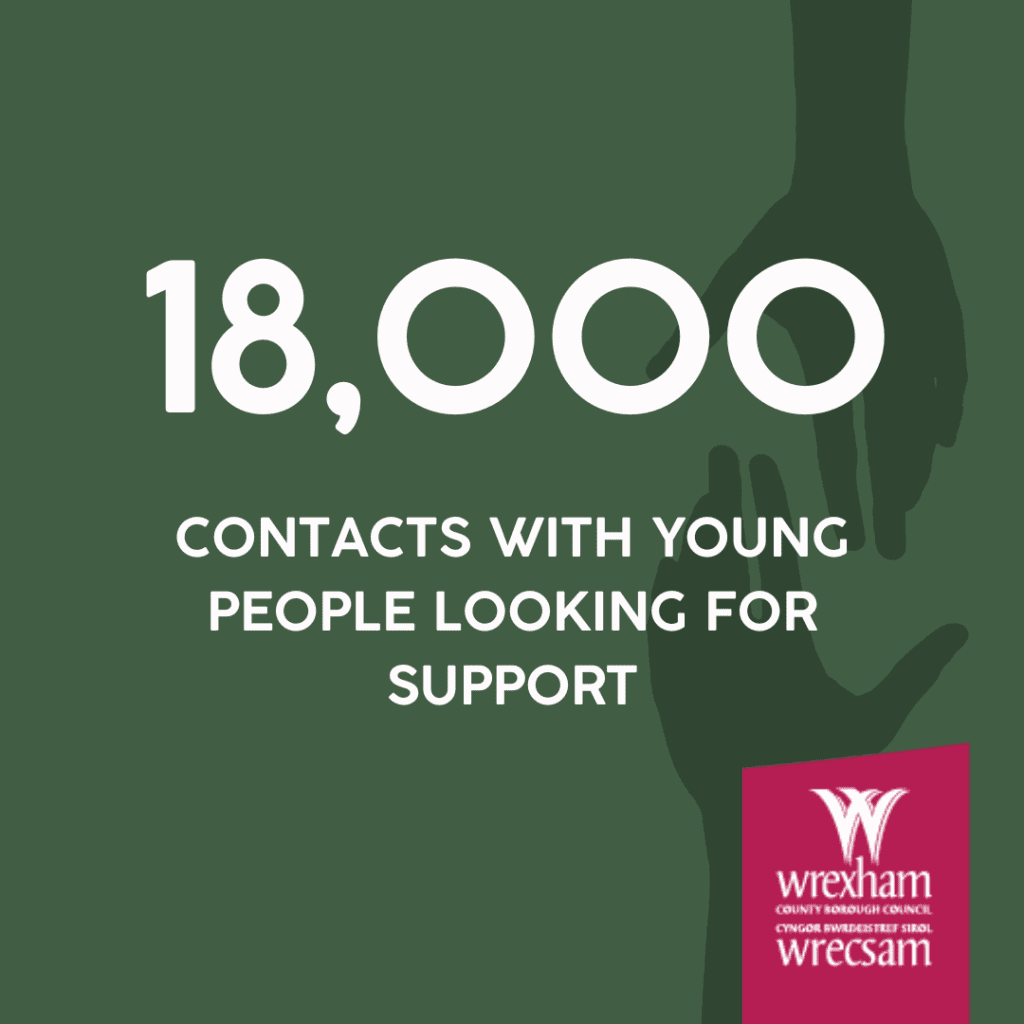
3pm (libraries)
Jo’s husband Alex picks the kids up from school, before heading off to the library to exchange some books.
Wrexham Council manages 10 branch libraries across the county borough, as well as a homelink library and pop-up library. Along with community resource centres, they play a key role in our communities, but we need to save at least £185,000 from our operating budget.
Take part in our consultation to find out more and have your say…
5pm (health and fitness)
Jo pops into Waterworld on the way home for a swim. She uses her Freedom Leisure membership card to attend spin and yoga classes a couple of times a week too.
The council contracts Freedom Leisure to run its leisure centres – including Waterworld, Chirk and the Gwyn Evans centre. This is a cost-effective way to provide good sports and fitness facilities for local people.
6pm (supported living)
Jo’s sister Jess visits for a few hours in the evening to have tea with Jo’s family.
Jess has a learning disability and lives in supported living quarters, where she gets the care and help that she needs.
We work with registered social landlords to provide bespoke housing for people who need care and support.
There are currently 74 supported living houses in Wrexham that support 179 adults with disabilities, at a cost of more than £15 million a year.

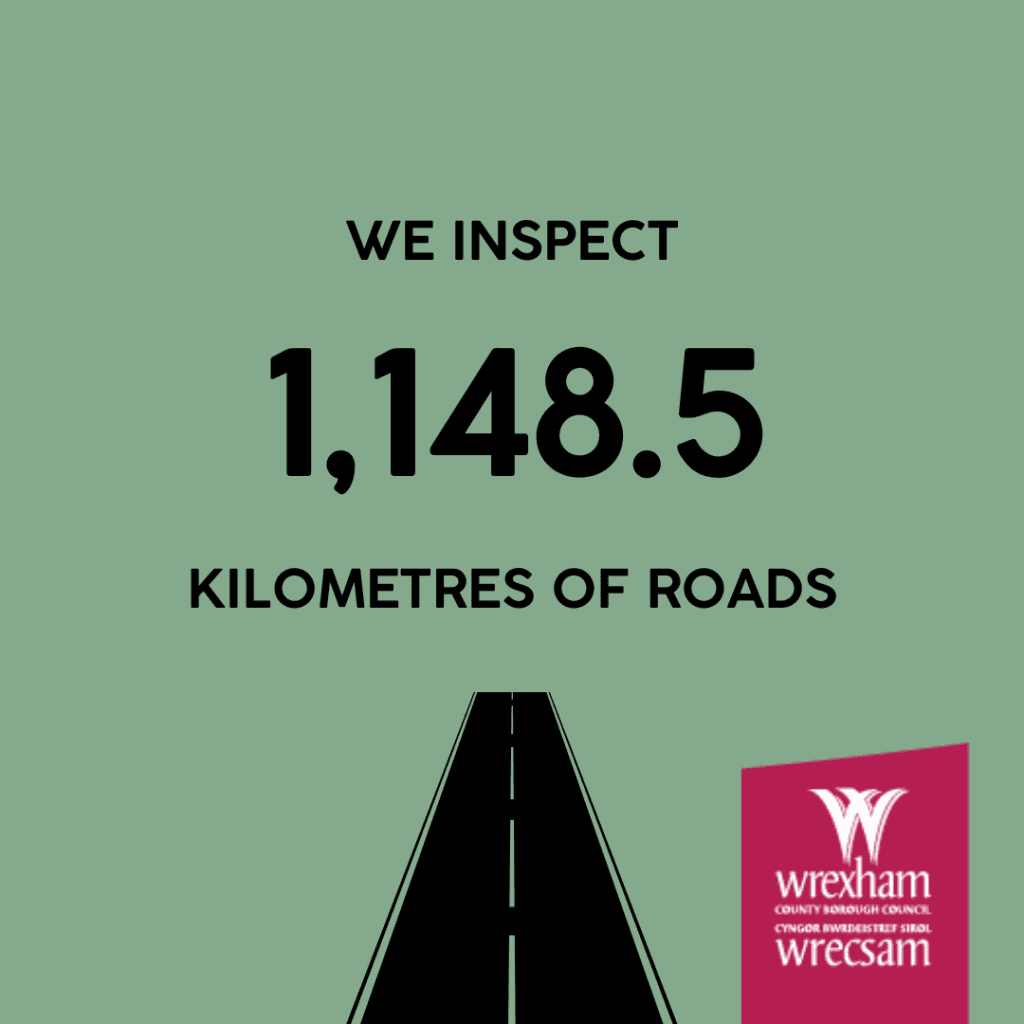



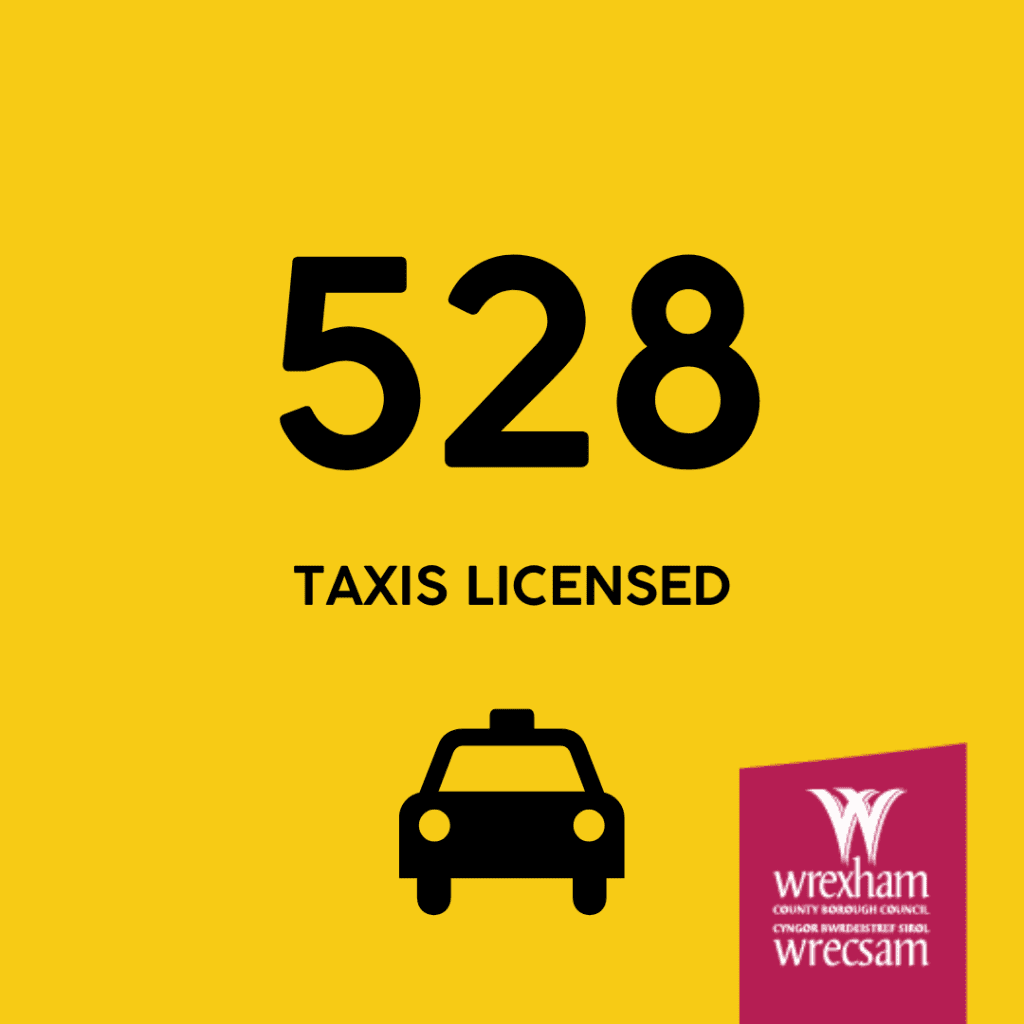
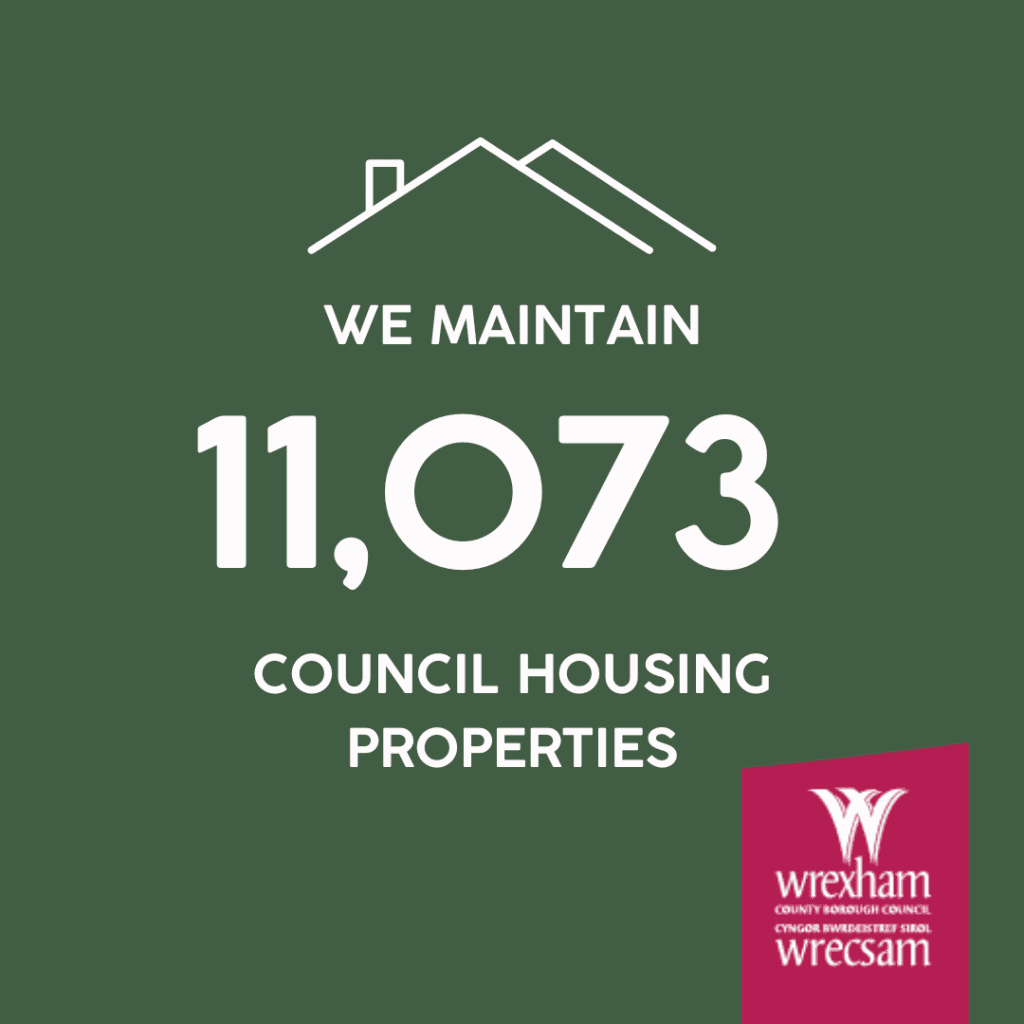
6.45pm (household recycling centres)
Alex pops to the Household Recycling Centre on Bryn Lane with some old garden furniture he wants to get rid of.
Wrexham has three recycling centres in Wrexham – Bryn Lane, Brymbo and Plas Madoc. The sites are managed by FCC Environment on behalf of the council.
Between April 2023 and March 2024 we dealt with 23,750 tonnes of waste at the sites, and recycled or composted just over 78% of this.
7.30pm (taxi licensing)
Jo calls a taxi to take her sister home. Jo always uses the same taxi firm, as the driver is a friend of the family and always makes sure Jo gets home safe.
When you jump in a licensed taxi, you probably don’t realise how the council is involved behind the scenes. We help maintain a safe and well regulated taxi industry across the county borough.
As of November 2024, we license and supervise a total of 528 vehicles, 586 drivers and 49 operators (from large taxi companies to sole operators).
8pm (housing)
Jo and Alex rent their home from the council. One of the radiators upstairs has sprung a small leak. Nothing major, but Jo uses the council website to report it online.
We’re one of the biggest local authority housing providers in Wales. As at December 2023 our housing stock consisted of 11,073 properties.
9pm
The kids are in bed. Bob’s been for his evening walk. Jo and Alex put their feet up in front of the TV. Best part of the day 🙂
The tip of the iceberg
Throughout the day, Jo and her family have come into contact with council services that cost millions of pounds a year to run. But we do so much more than this.
We arrange foster placements, deal with planning applications, support local businesses, help young people stay out of trouble, clean streets and pavements and administer housing benefits.
We help protect the environment, manage public events and venues like Ty Pawb and the museum, provide car parking, support tourism, register births, deaths and marriages, and manage the crematorium.
These services are just the tip of the iceberg…the list is huge.
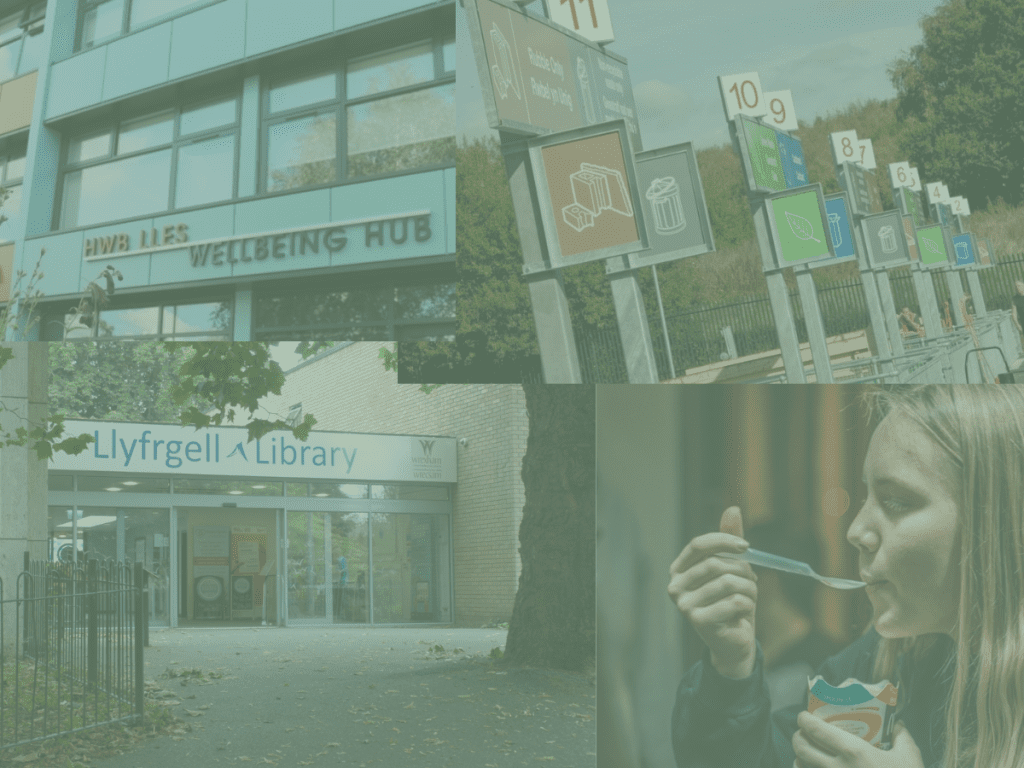
Costs are going up
As a council we’re facing a potential budget gap of around £28 million over the next two years.
This is because demand for services has increased, the cost of delivering services has gone up, and the funding we receive from the government just can’t cover the bills.
On top of this, the council has already been forced to make cuts of over £60m over the last decade.
Councillor Mark Pritchard, Leader of Wrexham Council says:
“Many people will think ‘well what’s the big deal – we pay council tax so why can’t the council just keep running all these services?’
“The fact is, council tax doesn’t come close to paying for the services we deliver, and we rely on government funding, but there’s less and less to go round.
“Councils have been underfunded for a long time, and we’re going to have to radically rethink what we do.
“But the key is to work together with local people and communities, to figure out what the priorities are. There are some services we have to provide, and there are some that people can’t live without.
“But there are other things that we might be able to do differently – in a more cost effective way – or stop altogether.
“There are difficult conversations ahead, so we have to work together.”

